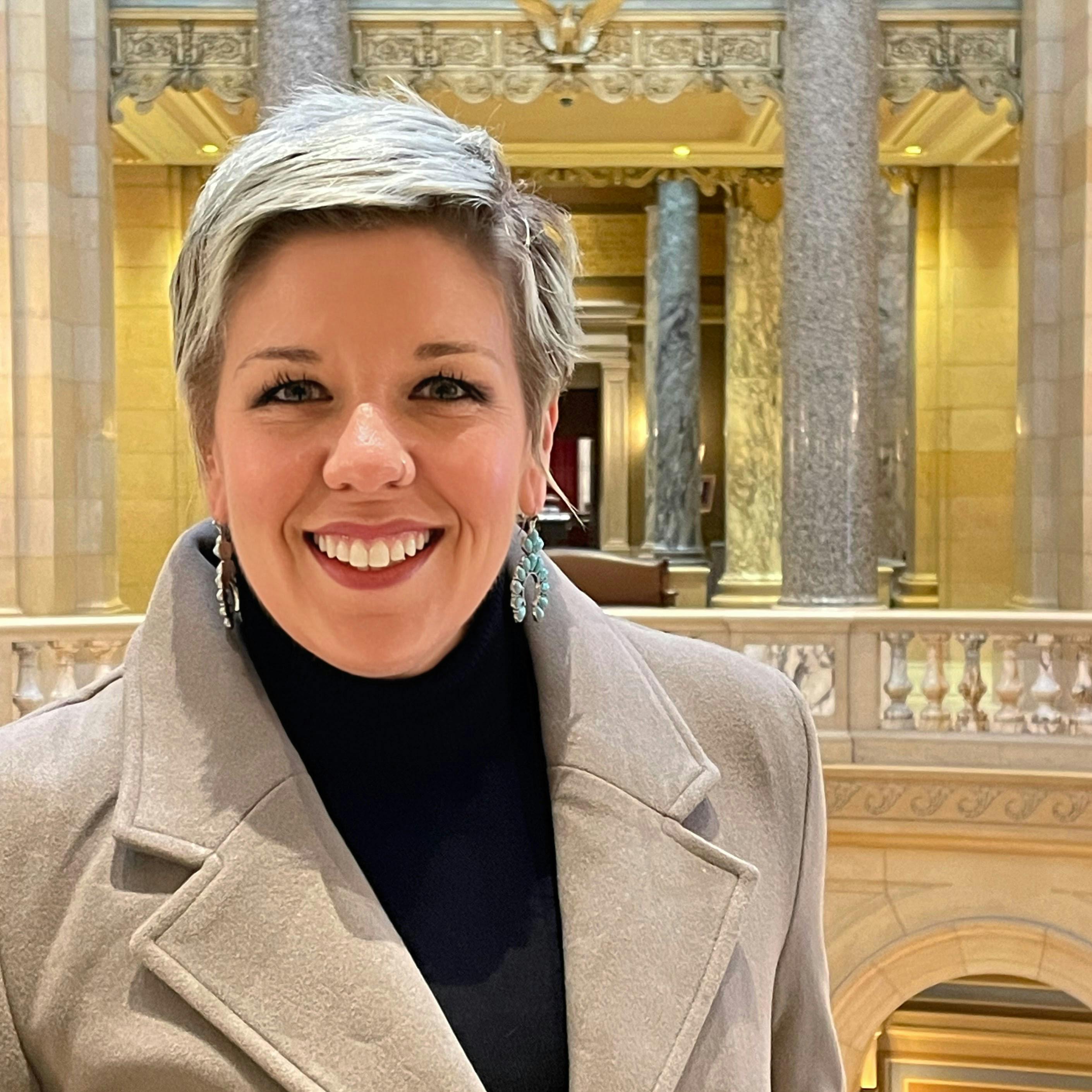Minnesota Rehabilitation and Reinvestment Act

Why MRRA?
The Minnesota Rehabilitation and Reinvestment Act seeks to promote safety and personal transformation by incentivizing individuals to engage in services that have been proven effective in reducing misconduct and recidivism. Our current system primarily focuses on negative consequences for failing to participate in important programming. MRRA changes the motivation from avoidance of a consequence to achievement of a benefit, a potentially powerful change in mindset. MRRA is earned, not automatic.
Key Components of MRRA
Individualized Rehabilitation Plan (IRP) – Based on assessment results, individuals will work with their case manager and a multidisciplinary team to develop an IRP, comprised of the person’s case plan and release plan.
Earned Incentive Early Release – Individuals can earn an earlier release from prison by completing the goals outlined in their case plan. In addition to the completion of goals through meaningful participation in treatment, programs, and/or services, individuals will have to demonstrate behavior change and progress to earn earlier release, resulting in release up to 17% earlier.
Supervision Abatement – Once released, individuals can earn a shortened period of community supervision by completing the goals outlined in their supervision plan.
January 22, 2026 - MRRA Public Virtual Town Hall Recording
The below recording is an update for members of the public about the progress of MRRA, including presentations by MRRA project leads Karley Jorgensen and Kate Frykman as well as Director of Victim Services, Liz Richards.
A .pdf copy of the slide presentation is available to view here.
MRRA Policies
Policy 204.064, Earned Incentive Release (EIR)
Policy 206.060, Earned Compliance Credit (ECC) / Supervision Abatement (SA)
Implementation Timelines (see also FAQs below and the Timeline to the right)



Frequently Asked Questions (FAQs)
What is MRRA?
MRRA (Minnesota Rehabilitation and Reinvestment Act) is a law that creates a pathway for incarcerated people to earn earlier release by completing individualized, evidence-based programming and demonstrating change. It pairs rehabilitation with public safety requirements.
Why is MRRA taking time to implement?
MRRA requires building new systems from the ground up, including:
- Individualized rehabilitation plans for all 8,000 incarcerated people
- New victim input processes
- New technology system to automate credit calculations
- Updated practices for assessments, case planning, and multidisciplinary team (MDT) engagement
- Staff training across every DOC facility and field services office
This level of comprehensive and systemic change cannot be safely or logistically implemented all at once.
Additionally, because MRRA is a significant change in how Minnesota handles corrections, significant time and energy have been invested in changing policies and establishing programs that will ultimately support a broader implementation of the law.
When will people actually start being released under MRRA?
Some people have already been released and more are under review. DOC has started with small, manageable pilot program to test the review process. In 2026, implementation will begin in phases, beginning with three facilities and gradually expanding to all facilities throughout 2026.
How will victim input be included?
- For people already incarcerated, victim input will be collected. These processes are being established, and victims are being located.
- For new commitments, victim input will be gathered at the beginning of incarceration.
- A respectful, meaningful, and consistent process is very important.
Who qualifies for Phase 1?
Individuals who are eligible based on the above criteria are eligible for Phase 1 if they do not:
- Have any active sentences for offenses on the MRRA EIR deferred review offense list on the day of most recent admission or since
- Have any formal discipline
- Be high or very high risk according to the MnSTARR 3.0
Why is there a Deferred Review Offense List?
The MRRA EIR Deferred Review Offense List was created in order to manage the DOC’s internal capacity for required aspects of review and to provide time to gain experience, finalize and improve processes, and broadly complete victim notification processes.
View the Deferred Review Offense List:
What is the timeline for EIR implementation?
Implementation of the policy is expected to occur over four distinct phases, beginning in January/February of 2026 and concluding with full-scale implementation in late 2027.
When will people who aren’t qualified for Phase 1 become eligible?
Each phase expands eligibility to include more individuals, including those who were previously deferred. The phased approach is necessary to ensure public safety
What about the people who are waiting for MRRA?
DOC provides guidance on the things individuals can do while they wait, including engaging in programming and education and maintaining positive behavior.
How will families stay informed?
Through memos, the DOC website, and public town halls.
Will MRRA negatively impact public safety?
Not if implementation is done correctly. Early release is earned, and only individuals who complete programming and demonstrate change can qualify. Risk assessments and victim input are part of every review.
When will the technology be ready?
The DOC is undergoing a transformative IT systems change. Some aspects that support MRRA will come online in 2026, but the fully updated and modernized system is not expected to be ready until 2028.
What is a Success Planner?
A key component of MRRA is the “Success Planner.” MRRA requires the individual to earn early release and the completion of a comprehensive success planner where the incarcerated person documents and describes how they have changed is a key element. Developing this process and allowing sufficient time for completion are critical components of implementation.
What is the MnSTARR 3.0?
The MnSTARR 3.0 stands for Minnesota Screening Tool Assessing Recidivism Risk, version 3.0. It’s a tool used by the Minnesota Department of Corrections to predict the chances that someone will commit another crime after release. Here’s what it does, explained at an 8th grade level:
- MnSTARR 3.0 is a computer-based assessment that looks at different factors—like past behavior and personal history—to figure out a person’s risk level for reoffending.
- Risk Levels: It sorts people into four groups: Low, Medium, High, and Very High risk.
- The score helps decide things like supervision plans and eligibility for programs, including early release under the Minnesota Rehabilitation and Reinvestment Act (MRRA).
Who is not eligible for Earned Incentive Release (EIR) through MRRA?
Individuals must not:
- Be serving a life or indeterminate sentence
- Be subject to good time
- Be serving a non-Minnesota sentence
- Have had less than a year to serve upon admission
- Have any open or pending warrants, detainers, criminal cases, or custodial obligations to another jurisdiction
- Be very high risk according to the MnSTARR 3.0
- Be assigned a predatory offender level III by the End of Confinement Review Committee
- Be within 6 months of their current confinement release date
- Have not more than 12 months before service of 50% of their executed sentence










